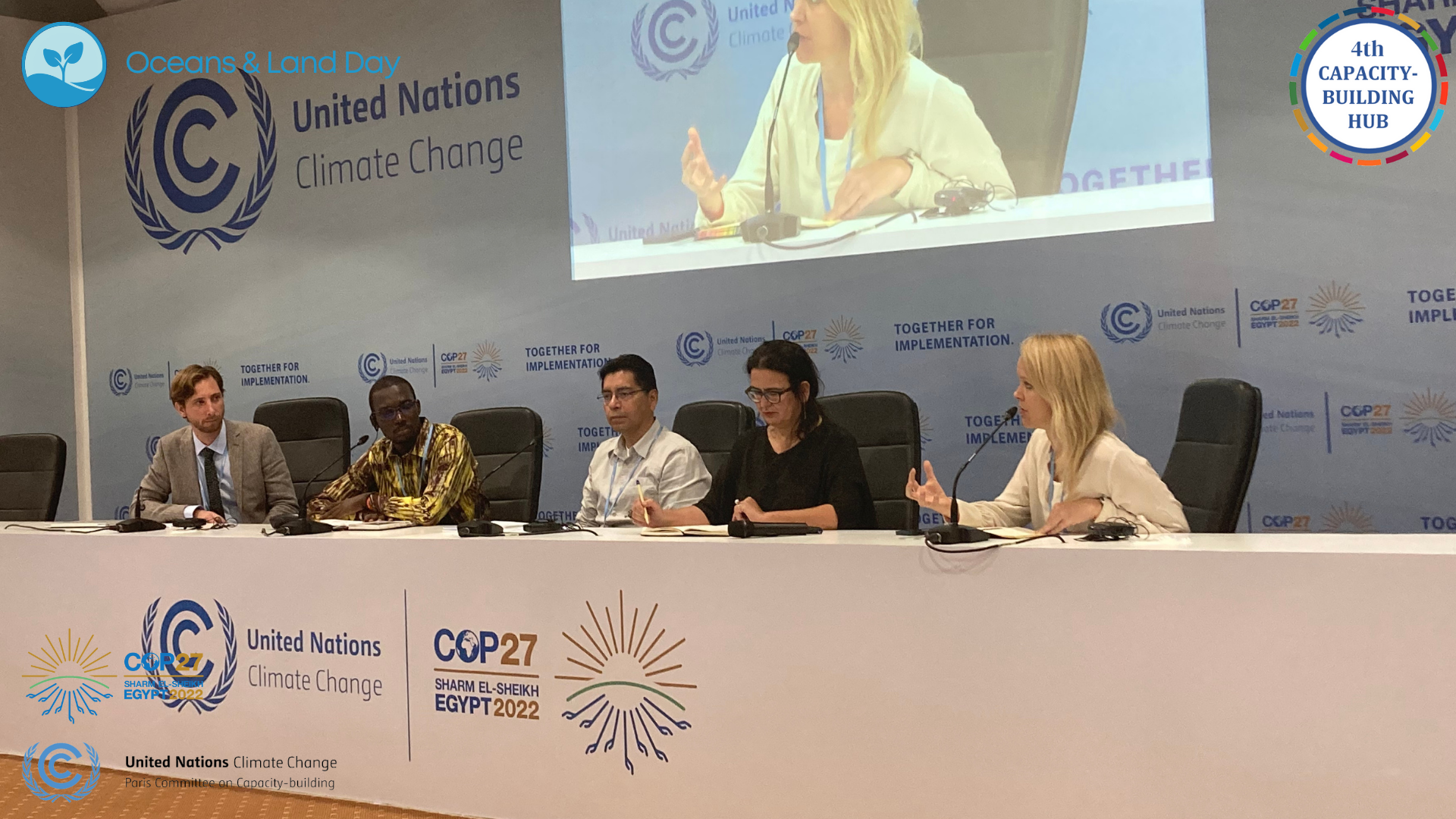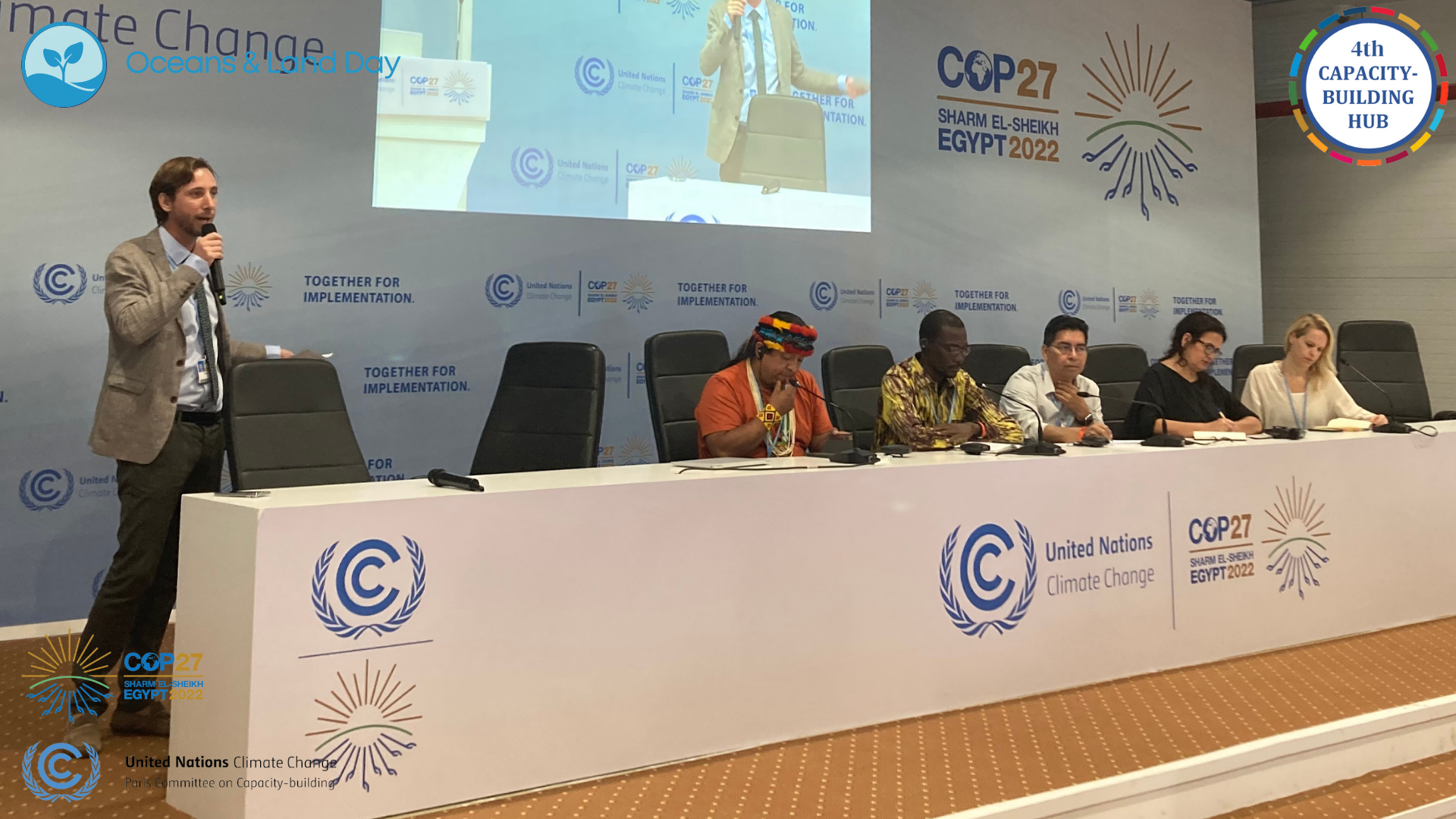0
Leveraging local adaptation knowledge to scale up nature-based solutions
14
Nov.
2022
09:00h
-
10:00h
Virtual event
Sharm El Sheikh, Egypt / Virtual
Virtual Egypt
Capacity-building Hub, Tonino Lamborghini International Convention Center
Tonino Lamborghini International Convention Center
UNFCCC
English
0
Leveraging local adaptation knowledge to scale up nature-based solutions
14
Nov.
2022
09:00h
-
10:00h
Virtual event
Sharm El Sheikh, Egypt / Virtual
Virtual Egypt
Capacity-building Hub, Tonino Lamborghini International Convention Center
Tonino Lamborghini International Convention Center
UNFCCC
English




